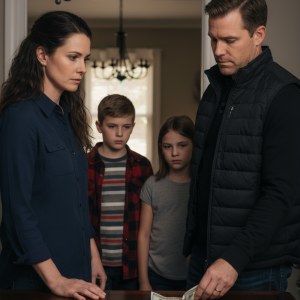I was eight months pregnant and utterly drained—physically, mentally, emotionally. The tram doors opened with a hiss, and I stepped inside, my belly leading the way. I found a seat and gratefully sank into it, my body aching from the day. Moments later, a woman stepped on. She cradled a baby in one arm and juggled a hefty bag with the other. Her face told a story of sleepless nights and silent battles.
No one moved. No one offered her a seat. So I stood, motioning for her to take mine. She looked at me—really looked at me—and something in her gaze flickered, like recognition or pity. She hesitated, then accepted with a nod. I thought that was the end of it.
But when she got off, I noticed something unusual. A soft, wet sensation in my bag. My pulse quickened as I reached in and pulled out a cracked pacifier—its rubbery edges worn from desperate chewing. Wrapped around it was a note, creased and damp:
“Don’t be a hero. No one claps for mothers falling apart.”
My stomach knotted. My breath caught. I read the words again. Was this judgment? A warning? A cry from someone who had been where I was going?
I stared at the pacifier in my trembling hand and suddenly understood. That woman didn’t see a kind gesture—she saw herself. A version of her, months or maybe years ago, still trying to carry it all with a smile. She wasn’t trying to insult me. She was trying to tell the truth no one else would say out loud: Motherhood is hard. And pretending you’re fine when you’re crumbling inside doesn’t make you a hero. It just makes you lonely.
That day, something shifted in me. I stopped striving to be the flawless mother I thought I had to be. I stopped performing strength and started giving myself permission to feel weak, to ask for help, to breathe. Because sometimes, the bravest thing we can do as mothers isn’t doing it all—it’s admitting that we can’t.
And on the days that feel never-ending, when our arms are tired and our hearts heavier than we can carry, surviving—just surviving—is more than enough.





